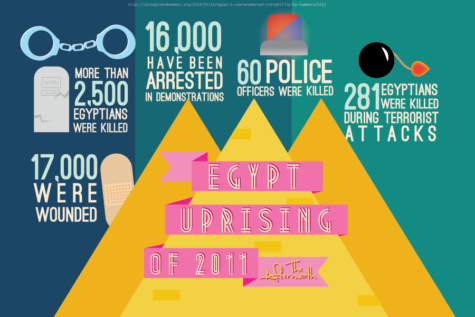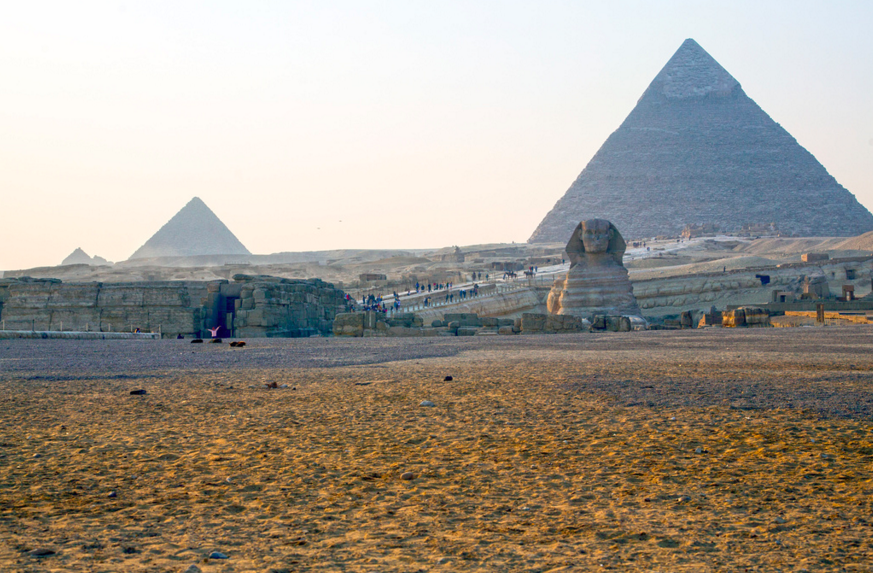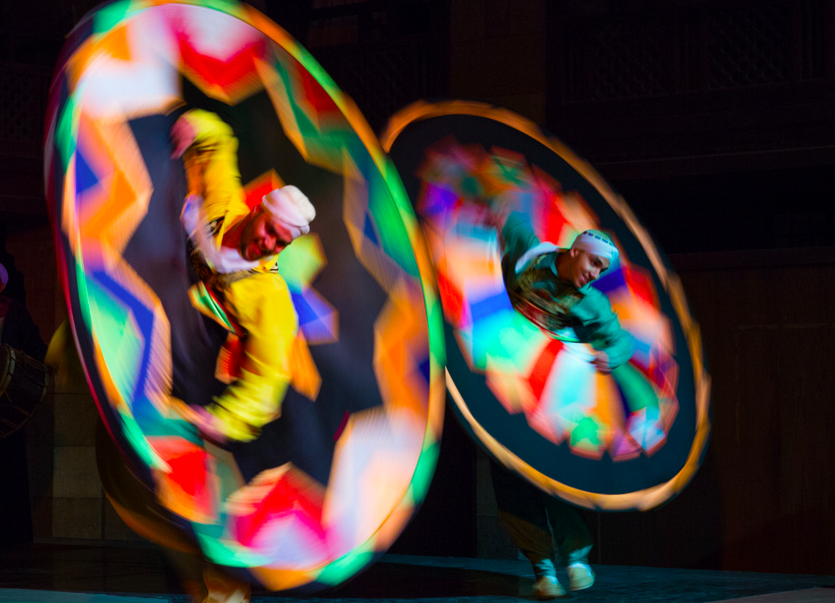The false notions about traveling to an Arab populated country
May 5, 2016
Known as the Black Land for its silt rich river bank, Egypt rose as one of the most complex and unrivaled ancient civilizations in history.
As an aficionado of Egyptian art, history and architecture from a young age, seeing the artifacts and architectural feats in reality allowed me to experience the wonders from another dimension.
Prior to leaving for Egypt, my family was faced with alarmed and skeptical comments from friends, questioning the safety of our travel.
The British Foreign Office continues to advise anything except “essential travel” to Egypt outside the Nile Valley and warns that “there is a high threat from terrorism”.
A year after the revolution, circumstances became so desperate that booking companies halted publishing travel packages to Egypt for a three year time frame.
Although plagued by social and religious tensions, the Middle East is a historically rich region, housing monuments such as the ruined city of Persepolis in Iran, Treasury at Petra in Jordan and Pyramids in Egypt.
In the city of Cairo, we visited the Pyramids, Sphinx and Tahrir Square. While taking a river cruise down the Nile River, temples lined the banks of rivers in the cities of Karnak, Philae, Edfu, Luxor and Abu Simbal.
“The revolution really affected the economy of Egypt, which of course affected me negatively since I am in the tourism industry,” Blue Sky travels tour guide Rehab Agag said. “All the international investment left the country and we are still struggling to get them back into the country.”
Coppell High School junior Laila Kamel was 11 when the first uprising started and remembers her family’s reaction when the events unraveled. Since most of her family lived in the northern city of Alexandria, they were not directly affected but found themselves in a difficult financial situation, similar to many Egyptians at the time.
“Those working in tourism were the most heaviest affected. Not everybody could afford to pay bills and stuff like that, it was really tough on all Egyptians,” Blue Sky tour guide Kareem Shemis said.
As Kamel’s family watched the revolutionary events unfold in their home country from abroad, they anticipated change, initially excited about the movement.
“At first, [my parents] were really excited for the democratic movement by the people but as soon as that turned into another military dictatorship, everyone was upset by that,” Kamel said.
Egyptians of different classes, religions, and social backgrounds came together for 18 days at the Tahrir Square, the heart of Cairo, to send one extraordinary message to the government. They wanted to remove the 30-year dictator, President Mubarak from office, and establish a democratic government for the people, by the people.
“As soon as it flipped into a dictatorship after the uprisings, it was really upsetting because my hope depleted really quickly,” Kamel said.
Shemis is a native Egyptian whose family lived in an apartment directly overlooking the Square. Many of his friends were part of the young generation of Egyptians who called for the overthrowing of the president by the means of protests and violence.
“The country took four years to back to normal. There are no signs of destruction now in Cairo or any other cities left from the revolution, everything to back to being clean and nice,” Shemis said.
The Museum of Egyptian Antiquities stands directly on the outskirts of the Square, causing artifacts to be damaged and looted from the museum. Many goods were tracked down by security as thieves attempted to sell items on the black market.
“The government here has changed many times, the last change was [April 12], things have not gotten back to normal completely, it will take at least two more years for things to settle down,” Agag said.
Areas outside the Nile Delta are not monitored by the military, causing the desert to be unsafe for people, whether local or tourist. When visiting sites, tour guides alert the military on patrol that there are American citizens in the area and travel agencies ensure that a security guard will travel with groups to more remote areas.
Cities with tourist attractions such as Karnak, Cairo, Luxor and Alexandria have sufficient precautions taken by the Egyptian military to ensure safety.
The Egyptian revolution in the AP Human Geography curriculum was presented to students as positive movement that freed Egyptians from the previous oppressive regime.
“I feel an echo of frustration in this country because we have the semblance of democracy,” Human Geography teacher Andrew Patterson said. “On one hand, I never want to see anything turn to violence but on the other hand, I understand that people get frustrated when working through the system and do what they do,”
Although it is easy to be swayed by the stereotypical notions of the Middle East being socially backwards, violent, unstable and unaccepting towards Americans, such breathtaking experiences should not be missed.
“Since the revolution, life has been tough and the cost of living has escalated in Egypt but the Egyptian people are strong and have hope anyways,” Shemis said.












